Origin and changes in implementation of Due Diligence
Due Diligence: a normative reality in the Agenda of Human Rights and Companies
Author: Ana Laura Figueiredo
In this new blog series, we are going to address the due diligence, incorporated by the UN’s Guiding Principles, and some normatives, already approved or in discussion, that became a reference for the study of the subject and seek to transform its application. We will analyze the French Due Diligence Law (Loi de Vigilance), the European Union Directive on Corporate Sustainability Due Diligence, and the German Act on Corporate Due Diligence Obligations in Supply Chains and, finally, other normative instruments that intend to address the accountability of the value chain, more than the due diligence, for example the brazilian Bill 572/2022, topic of another series in which we explain the National Agenda and its construction process.
This series, in addition to dealing with a very relevant and current topic of the Agenda for Human Rights and Business, is directly involved with the current research project carried out by Homa “Repercussions of the German Due Diligence law in Brazil”.
Origin of the Due Diligence
The due diligence principle appears as a risk minimization mechanism for the corporate sector, therefore, it seeks to reduce the impacts on the economic management of companies. In this series, we will address the due diligence on human rights, which, despite being introduced in the business context, differs in relation to the objective that, in this case, is the previous analysis of the risks of the activity to prevent violations of human rights.
This conceptualization came into practice with the rise of globalization in the 1980s, along with the development of the Global Agenda for Human Rights and Businesses and with the influence of the Organization for Economic Cooperation and Development (OECD), as a need to ensure greater transparency in the operations of companies. This transparency would be achieved by monitoring the supply chain, as companies began to outsource large parts of their production and supply chains. Therefore, self-monitoring and corporate social responsibility are the base of the institute at this initial moment and its compliance is directly linked to the company’s image.
After its appearance, I had a period of intensification of neoliberalism in which the debate on the issue was forgotten and was only resumed within the scope of the United Nations under the influence of the Global Compact after the 2000s.
Conception under the Guiding Principles
What calls for attention at this moment is the renewal of the debate from a voluntarist logic, once the binding proposals were not well perceived, with the approval of the Guiding Principles on Business and Human Rights developed by John Ruggie in 2011. Due diligence in the field of human rights now has a parameter: it is a process that must identify, prevent, mitigate, monitor and report on the risks and impacts of business activity. The principles, which are part of the international soft law instruments because they do not have normative force, only establish the responsibility to respect human rights with the limitation of risks, reinforcing the supremacy of business logic in which risks are inherent to your activity and development would be compensatory.
Principles 16 to 24 are the ones that are most related to due diligence, as they try to establish self-monitoring mechanisms and commitments that companies must follow to prevent and mitigate their “impacts”. Principle 17 explicitly states:
“In order to identify, prevent, mitigate and account for how they address their adverse human rights impacts, business enterprises should carry out human rights due diligence. The process should include assessing actual and potential human rights impacts, integrating and acting upon the findings, tracking responses, and communicating how impacts are addressed. Human rights due diligence:
- Should cover adverse human rights impacts that the business enterprise may cause or contribute to through its own activities, or which may be directly linked to its operations, products or services by its business relationships;
- Will vary in complexity with the size of the business enterprise, the risk of severe human rights impacts, and the nature and context of its operations;
- Should be ongoing, recognizing that the human rights risks may change over time as the business enterprise’s operations and operating context evolve.”
Soon after the approval of the Ruggie’s principles, the creation of National Action Plans began to be encouraged to disseminate and boost their use, but with the same voluntarist characteristic. Although many countries have created their NAPs, as analyzed in another series of the blog, what was noticed was the construction of instruments without democratic and participatory legitimacy and, more than that, with no adherence by the companies. As a result, several countries began to discuss and approve specific due diligence laws, making compliance with them mandatory. The content and levels of application of the laws, although based on the same mechanism, are diverse, which leads us to analyze some specific regulations throughout this series.
Importance of an international regulatory framework
Even though the rules reveal an advance in the accountability of companies in the face of the protection of human rights, there are many gaps related to the issue of extraterritoriality and the limitation of reach in the supply chain, the architecture of impunity and corporate capture, the lack of guarantee regarding the full reparation, in addition to the lack of adherence due to the competitive disadvantage.
Therefore, the approval of a Binding International Treaty on Business and Human Rights is still very important in order to establish a greater and more uniform scope of application of due diligence and other preventive and sanctioning mechanisms.
In the next post we will analyze the French Law on Surveillance, Law 399/2017, one of the first to regulate the subject and, mainly, a law that has already been tested in its application. The case in question involves Total Energies SE, a French oil company that intends to extract oil in Uganda and that has already violated the human rights of the local population at this preparatory stage.
Glossary
|
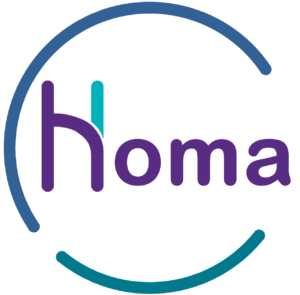
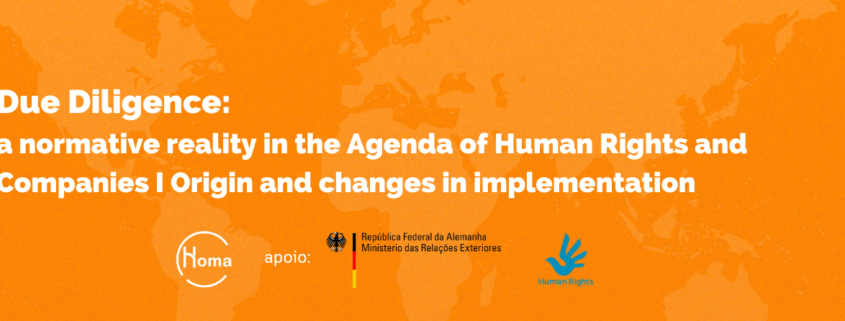
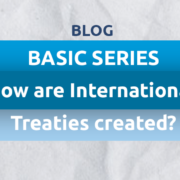
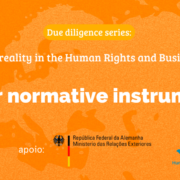

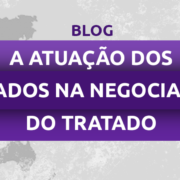
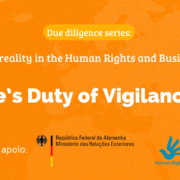

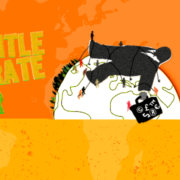
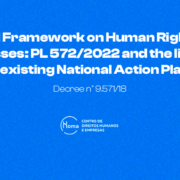


Leave a Reply
Want to join the discussion?Feel free to contribute!